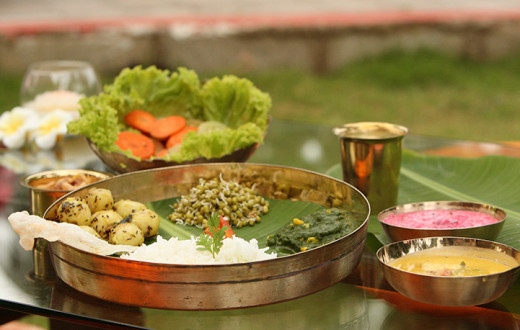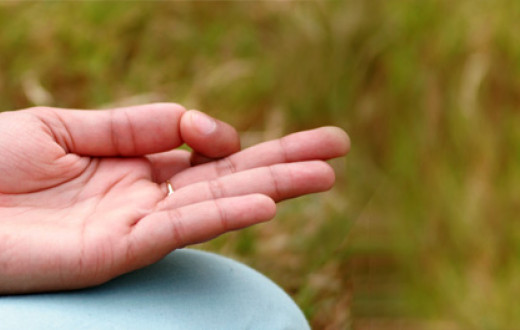If you’ve ever had a chance to be around Gurudev Sri Sri Ravi Shankar for 5 minutes, you’d notice Gurudev is a man of immense wisdom, sincerity, and commitment. However, the one quality you don’t have to focus hard to notice is how Gurudev is always cheerful and is filled with what the French like to say ‘joie de vivre’ (joy of living). Every human who meets Gurudev, no matter how many troubles he or she is carrying, comes back happy and positive. That’s not to say that Gurudev doesn’t experience sadness and pain. It’s been countless times that someone shares their story of how they are going through unparalleled suffering, and one can notice how strongly Gurudev empathises with that individual. There are many moments where he even cries for their pain as well. However, Gurudev doesn’t hold onto that pain and suffering and with either via his words or his presence, he teaches the same to the individual.

Life is a struggle when there is no knowledge
Ups and downs are a part of our lives. There have been events in our lives that have brought us great pleasure and happiness, and there have been ones that have brought us grief. But if we attach ourselves and crave for pleasurable experiences and react with aversion to unpleasant experiences, we are only inviting suffering. Events and experiences, and with them their pleasant and unpleasant sensations, come and go. It would be a mistake to not see them as they are and get attached to them. Most of the things happening to us are beyond our control and are not permanent in nature. There is no point obsessively thinking and complaining why that happened or try to over analyse the situation and attempt to “solve it”. Unfortunate things happen, just like fortunate things. We all need to learn not to let these events take control of our lives and dictate our emotions, especially long after they are gone. We all can be happy, no matter what, and here are some things we can do to cultivate that ‘joie de vivre’:

a) Stop trying to reach somewhere : We can’t wait for our problems to end to be happy. We have to learn to be happy through thick and thin - we have to be happy in the ‘now’. The mind likes to be busy, so when one problem ends, it won’t take it long to make a new one. The attitude of - ‘If only I could get this job or this partner or this kind of mother, I would have been so happy, or ‘I am going through this issue in my life. Let me deal with it and then I’ll be free,’ - isn’t conducive to happiness

b) Acceptance: Think of an instance that brought you great misery and sadness. You don’t need to go into the whole story and think of all the memories. Just one image or recollection that brings back the feelings to that event. Let them come to you. Note these feelings in your body. Familiarize yourself with them, and above all accept them. Don’t wish for them to go away. Mentally, or if you want, with a physical action, hug yourself and these feelings. Treat the memory and feelings with loving-kindness rather than hate and aversion. It requires courage but see the results for yourself. You’d notice you didn’t compound on this suffering by adding fear, hatred and aversion to the mix. By accepting, and seeing them as they are, we don’t have to be afraid of them. They are not even ours to own. Anger, hatred and jealousy existed long before we came on this planet. They don’t have an owner. See them like that, and again accept them. Also, once they are gone, observe their passing, and what’s left as well.
c) – The above point of acceptance is one of the supreme knowledge. The practice of accepting all experiences and seeing them as they are brings about a radical shift in our lives. However, it’s easier said than done. That’s one of the reasons we meditate. We practice and train our minds to live in the present moment. We train to be mindful of each moment, accepting all sensations and movements, be it pleasant, unpleasant or neutral. By regular practice, our minds transform to respond to each moment with maturity that brings sustainable happiness. So learn to meditate.
Wherever you are, you are likely to find a Sahaj Samadhi Meditation course near you.
Sometimes we win, sometimes we lose, or as Gurudev says, sometimes we win, sometimes we make others win. It’s all a game. So why not have some fun! Why not sing and dance! If you’ve come to one of our Satsangs, you know what we are saying. If you’ve not, contact us here, and join us. We’d love to dance and sing and celebrate this life with you.






































